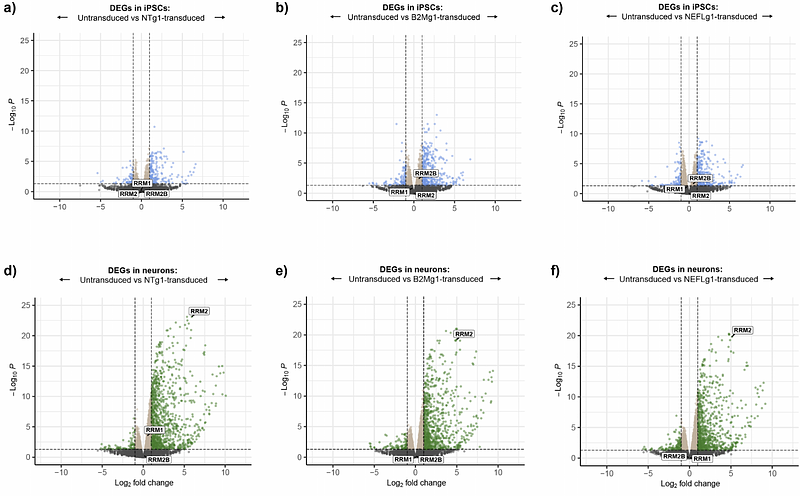Neuronal DNA repair reveals strategies to influence CRISPR editing outcomes

Neuronal DNA repair reveals strategies to influence CRISPR editing outcomes
Ramadoss, G. N.; Namaganda, S. J.; Hamilton, J. R.; Sharma, R.; Chow, K. G.; Macklin, B. L.; Sun, M.; Liu, J.-C.; Fellmann, C.; Watry, H. L.; Jin, J.; Perez, B. S.; Sandoval Espinoza, C. R.; Matia, M. P.; Lu, S. H.; Judge, L. M.; Nussenzweig, A.; Adamson, B.; Murthy, N.; Doudna, J. A.; Kampmann, M.; Conklin, B. R.
AbstractGenome editing is poised to revolutionize treatment of genetic diseases, but poor understanding and control of DNA repair outcomes hinders its therapeutic potential. DNA repair is especially understudied in nondividing cells like neurons, which must withstand decades of DNA damage without replicating. This lack of knowledge limits the efficiency and precision of genome editing in clinically relevant cells. To address this, we used induced pluripotent stem cells (iPSCs) and iPSC-derived neurons to examine how postmitotic human neurons repair Cas9-induced DNA damage. We discovered that neurons can take weeks to fully resolve this damage, compared to just days in isogenic iPSCs. Furthermore, Cas9-treated neurons upregulated unexpected DNA repair genes, including factors canonically associated with replication. Manipulating this response with chemical or genetic perturbations allowed us to direct neuronal repair toward desired editing outcomes. By studying DNA repair in postmitotic human cells, we uncovered unforeseen challenges and opportunities for precise therapeutic editing.


